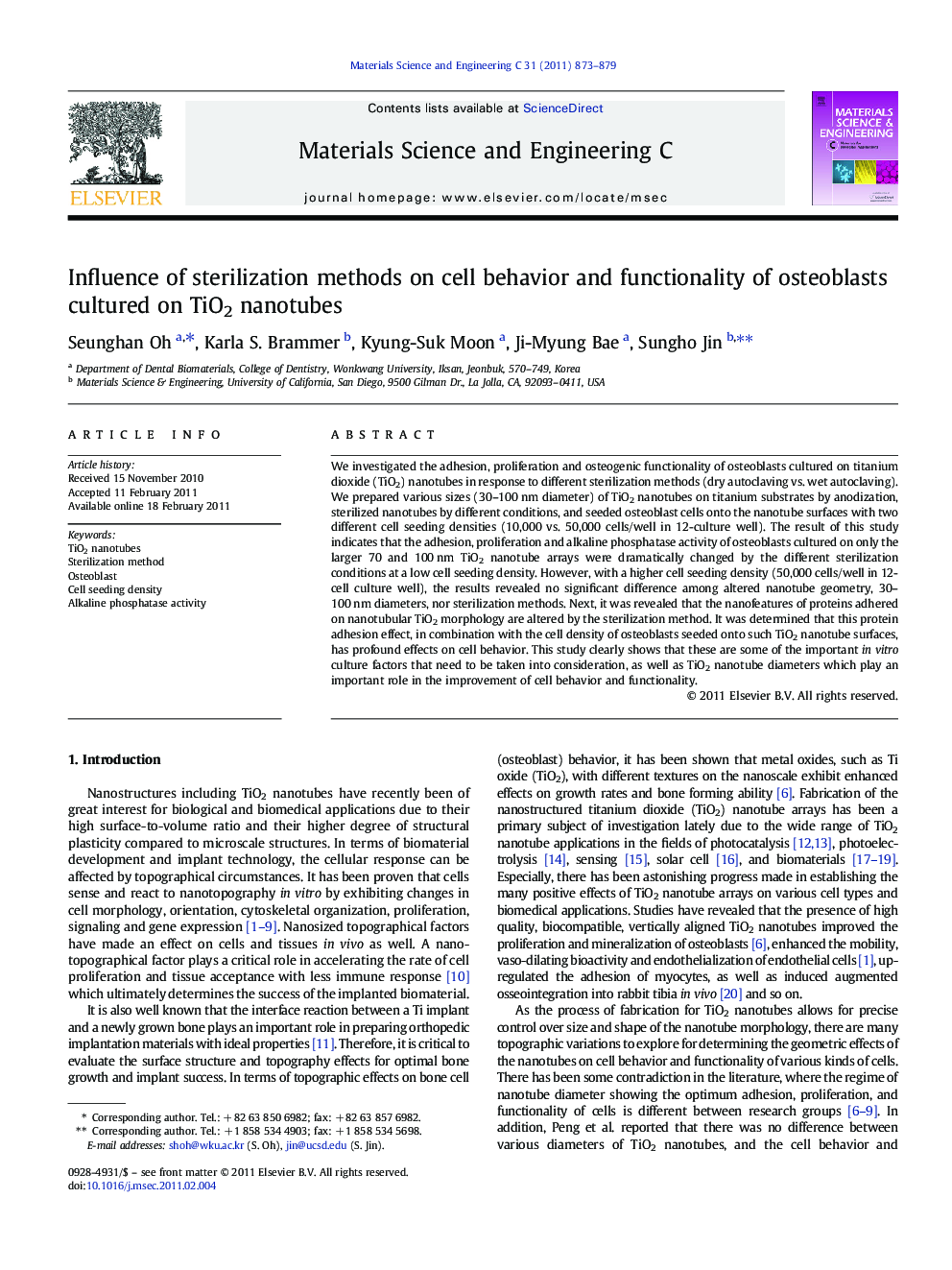| Article ID | Journal | Published Year | Pages | File Type |
|---|---|---|---|---|
| 1429275 | Materials Science and Engineering: C | 2011 | 7 Pages |
We investigated the adhesion, proliferation and osteogenic functionality of osteoblasts cultured on titanium dioxide (TiO2) nanotubes in response to different sterilization methods (dry autoclaving vs. wet autoclaving). We prepared various sizes (30–100 nm diameter) of TiO2 nanotubes on titanium substrates by anodization, sterilized nanotubes by different conditions, and seeded osteoblast cells onto the nanotube surfaces with two different cell seeding densities (10,000 vs. 50,000 cells/well in 12-culture well). The result of this study indicates that the adhesion, proliferation and alkaline phosphatase activity of osteoblasts cultured on only the larger 70 and 100 nm TiO2 nanotube arrays were dramatically changed by the different sterilization conditions at a low cell seeding density. However, with a higher cell seeding density (50,000 cells/well in 12-cell culture well), the results revealed no significant difference among altered nanotube geometry, 30–100 nm diameters, nor sterilization methods. Next, it was revealed that the nanofeatures of proteins adhered on nanotubular TiO2 morphology are altered by the sterilization method. It was determined that this protein adhesion effect, in combination with the cell density of osteoblasts seeded onto such TiO2 nanotube surfaces, has profound effects on cell behavior. This study clearly shows that these are some of the important in vitro culture factors that need to be taken into consideration, as well as TiO2 nanotube diameters which play an important role in the improvement of cell behavior and functionality.
